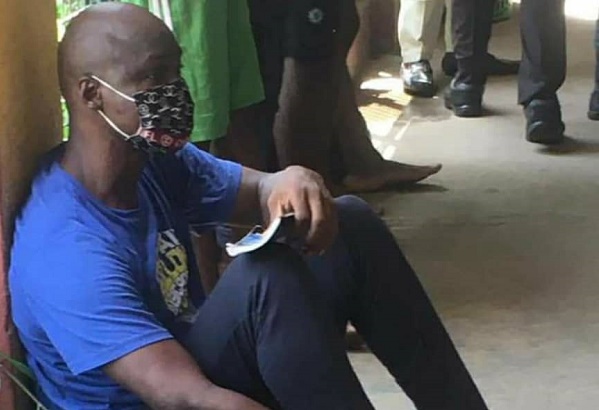Olukayode Olugbemi, a clinical psychologist, has told a court that the minor allegedly molested by Baba Ijesha appeared to have been tutored in her narration of what transpired.
Baba Ijesha is charged with six counts of indecent treatment of a child, sexual assault, attempted sexual assault by penetration and sexual assault by penetration.
He is undergoing trial before an Ikeja special offences court.
According to NAN, Olugbemi spoke while testifying as the third defence witness when the trial resumed on Friday.
The psychologist argued that “something is wrong” with the footage of an interview conducted by Olabisi Ajayi-Kayode, a rights expert and prosecution witness, with the 14-year-old.
Led in evidence by Dada Awosika, the defence counsel, Olugbemi said: “There is something wrong with the narration. I think this looks like a story that someone had relayed to her to repeat.
“There seems to be a deviation from the narration played out. There’s something called Minnesota Multiphasic Personality Inventory (MMPI) in psychology. This inventory will let you know if the child is lying or not.”
Awosika then asked the psychologist if it was normal for the narrator (the minor) to go back to the defendant after she had gone to clean herself as claimed by her in the footage.
“The narrator said he felt the wetness of the defendant after he told her to sit on his lap and later stood up to clean herself in which she later went back to the sitting room to watch television. In your practice, is it normal for the narrator to go back to her abuser?” he asked.
Responding, Olugbemi said it was not normal as children run to their “safe place” as they face post-traumatic stress disorder (PTSD).
“When something like rape or abuse happens, it is supposed to cause trauma. It is called PTSD. The child moves away from the person and does not go back again,” he said.
“One of the things children do when something like this happens is that they go to their ‘safe place’.
“It is either the mother’s room or their own room and hides. They do not go back to their abuser.
“In the encounter, I have had in the past, the next time the child sees their abuser, you will see visible fears because it is a traumatic event. It is what she can’t hide.”
Awosika further asked: “You saw from the footage that the interviewer brought out two dolls and gave the interviewee to describe the position of the defendant and herself in the sitting room. Is it normal in your profession?”
In his response, Olugbemi said: “It is not normal. There is something called suggestibility. When you talk about PTSD, you intentionally block out memories of the event.
“It has never happened in my session and I have never seen it in any case.”
During cross-examination by Babajide Martins, Lagos state director of public prosecutions (DPP), the witness, who admitted that it was his first time giving evidence in court, said he could not be absolutely certain that the event did not happen.
“Yes, I can not be absolutely certain that the event did not take place. There is no uniform way of handling trauma as individuals have different ways,” he added.
Oluwatoyin Taiwo, the judge, then adjourned the case to April 1 for the continuation of trial.
Copyright 2025 TheCable. All rights reserved. This material, and other digital content on this website, may not be reproduced, published, broadcast, rewritten or redistributed in whole or in part without prior express written permission from TheCable.
Follow us on twitter @Thecablestyle

